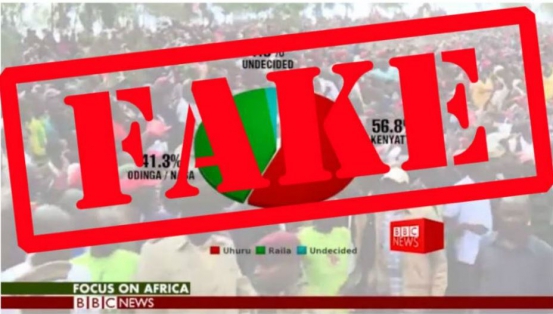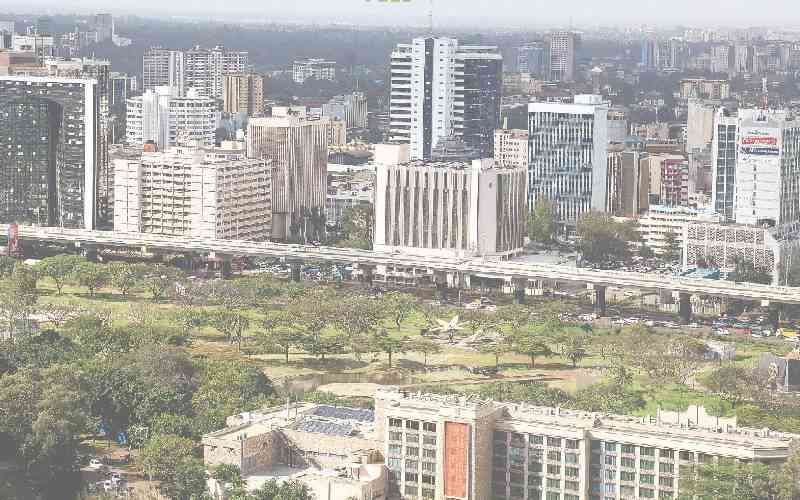×
The Standard e-Paper
Join Thousands Daily

Global news outlets BBC and CNN have been forced to issue clarifications after being the latest victims of fake news about the upcoming General Election.
BBC, whose programme ‘Focus On Africa’ was mimicked to provide a fake story about the Jubilee Party being ahead by a considerable margin in an opinion poll, distanced itself from the clip that has been circulating online.







